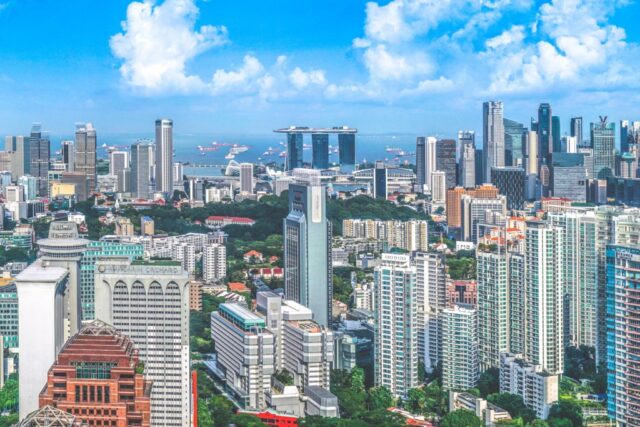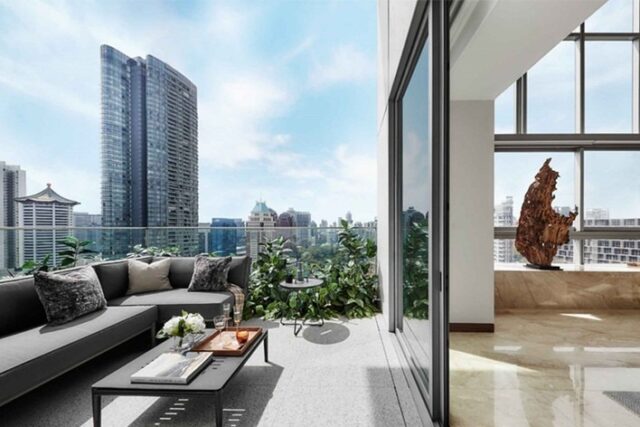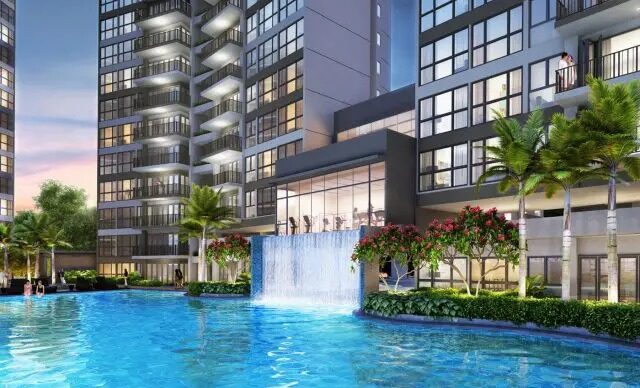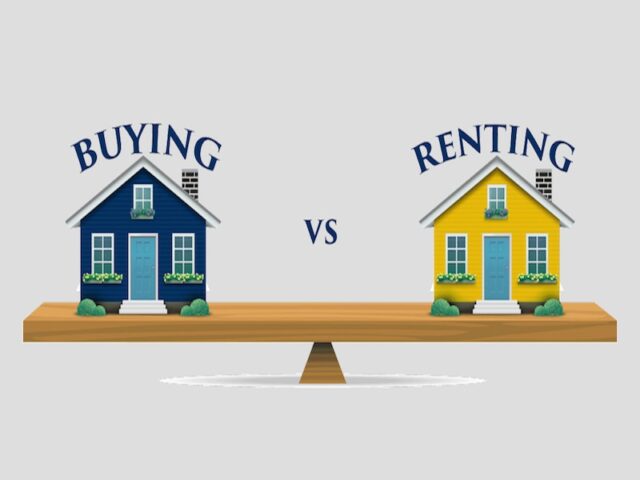
Singapore. The land of hawker food, strict rules, and a real estate market that can either make or break your bank account.
Expats arriving on the island often face the same pressing question—buy or rent? Both come with perks and drawbacks, and neither is as simple as it looks at first glance.
Why Expats Love Renting

For many, renting feels like the obvious choice. No long-term commitments, fewer bureaucratic nightmares, and the ability to pack up and leave with relative ease.
It’s a perfect option for those who aren’t sure how long they’ll be calling Singapore home. Choosing to rent in developments such as the Parktown Residence condo allows expats to enjoy modern amenities without the permanence of buying.
Here’s what makes renting so tempting:
- Minimal Paperwork – Forget about government approval and tons of legal hoops.
- Location Freedom – Live in the heart of the city today, move to a quieter neighborhood next year.
- No Property Taxes or Maintenance Hassles – Landlords take care of most of the headaches.
- Lower Upfront Costs – No down payment; just a security deposit and rent in advance.
The Downsides of Renting
Of course, not everything is sunshine and cheap hawker meals. Renting in Singapore comes with a hefty price tag, particularly in prime areas like Orchard, Marina Bay, or Holland Village.
- Skyrocketing Rents – Landlords aren’t shy about hiking prices when lease renewal comes up.
- Zero Equity – Every dollar spent on rent is money you’ll never see again.
- Landlord Woes – Sudden evictions, strict rules, and furniture that looks like it was picked up from a yard sale in the ‘90s.
Renting works for those who want flexibility. But for those staying long-term, watching thousands of dollars vanish into a landlord’s pocket can start feeling a little painful.
The Case for Buying Property

For expats planning to stick around for the long haul, buying sounds like a solid move. Property in Singapore holds its value well, and despite some market fluctuations, it remains a strong investment.
There’s also a certain satisfaction in knowing that every dollar spent on housing actually builds equity rather than disappearing into a black hole.
Why some expats take the plunge and buy:
- Long-Term Investment – Prices historically trend upwards. Owning means you profit from appreciation.
- No Landlord Drama – No rent hikes, no eviction threats, no bizarre furniture you can’t get rid of.
- Stability & Security – Perfect for those who have decided to call Singapore home indefinitely.
- Access to Loans – Singapore banks offer loans to foreigners, though with some limitations.
The Roadblocks to Ownership
Now, let’s talk about what makes buying property in Singapore a tough pill to swallow for expats.
- Expensive Doesn’t Even Begin to Cover It – Foreigners are restricted from purchasing certain types of property, and what they can buy comes at a premium.
- Additional Buyer’s Stamp Duty (ABSD) – A steep 60% tax slapped on foreigners buying property (yes, you read that right—60%). Permanent Residents (PRs) fare slightly better but still pay 5-30%.
- Government Restrictions – Expats can’t buy HDB flats unless they marry a Singaporean. Landed property? That’s almost impossible unless you have government approval.
- Commitment Required – Selling property quickly isn’t as easy as packing up and leaving a rental.
Buying is financially rewarding for some, but the massive upfront cost, taxes, and bureaucratic hurdles make it an option only for the truly committed.
A Side Note: Executive Condominiums (ECs)

For PRs, there’s a middle ground—Executive Condominiums. They’re cheaper than private condos but still come with restrictions.
A PR can buy an EC, but only after it has reached its Minimum Occupation Period (MOP) of five years. That’s great if you’re patient but useless for those looking to buy immediately.
Rental Market Trends
The rental market in Singapore is highly dynamic. Rental prices fluctuate based on demand, supply, and government policies.
During economic downturns, rents tend to stabilize or dip slightly, while in booming periods, prices can skyrocket.
For expats, factors like work location, lifestyle, and budget play a crucial role in choosing rental properties.
Those working in the Central Business District (CBD) often prefer apartments in areas like Tanjong Pagar or Clarke Quay, while families may lean towards suburban districts like Bukit Timah, where international schools and larger living spaces are available.
Expats should also be aware of the different types of rental contracts:
- Short-term leases (below 6 months) – Difficult to find, as Singapore has restrictions on short-term stays.
- One-year leases – More flexible but come at a slightly higher price.
- Two-year leases – Typically offer better rental rates and more stability.
The Hidden Costs of Buying and Renting
Renting may seem straightforward, but additional costs can add up quickly:
- Security deposits – Usually equivalent to one to two months’ rent.
- Agent fees – Sometimes payable by tenants, depending on the rental amount.
- Utility bills – Not included in most rental agreements.
- Furniture rental – Some units come unfurnished, requiring an extra investment.
On the other hand, buying property has its own set of hidden costs:
- Stamp duties – ABSD, Buyer’s Stamp Duty (BSD), and other levies can make a property significantly more expensive.
- Maintenance fees – Condo owners must pay monthly maintenance fees for shared facilities.
- Property taxes – Foreigners pay higher tax rates compared to locals.
- Legal fees – Conveyancing and legal paperwork add another layer of costs.
Renting vs. Buying – Which One Wins?

Let’s break it down:
| Factor | Renting | Buying |
| Upfront Cost | Low | High |
| Flexibility | High | Low |
| Monthly Cost | High, with no returns | Mortgage payments, but builds equity |
| Stability | Low (dependent on landlord) | High (own the property) |
| Government Rules | Minimal restrictions | Strict regulations, high taxes |
| Long-term Gain | Zero | Potential appreciation |
For short-term expats, renting makes more sense. Less hassle, lower initial costs, and the ability to move freely. For long-term residents or PRs, buying can be a solid investment—if they can stomach the costs.
Final Thoughts
Housing in Singapore is expensive. No way around it. Renting gives you freedom, but at a price. Buying builds equity, but the barriers to entry are brutal for foreigners.
Expats need to weigh their commitment to staying in the country against the financial realities of its real estate market. At the end of the day, whether renting or buying, one thing is certain: living in Singapore doesn’t come cheap.









